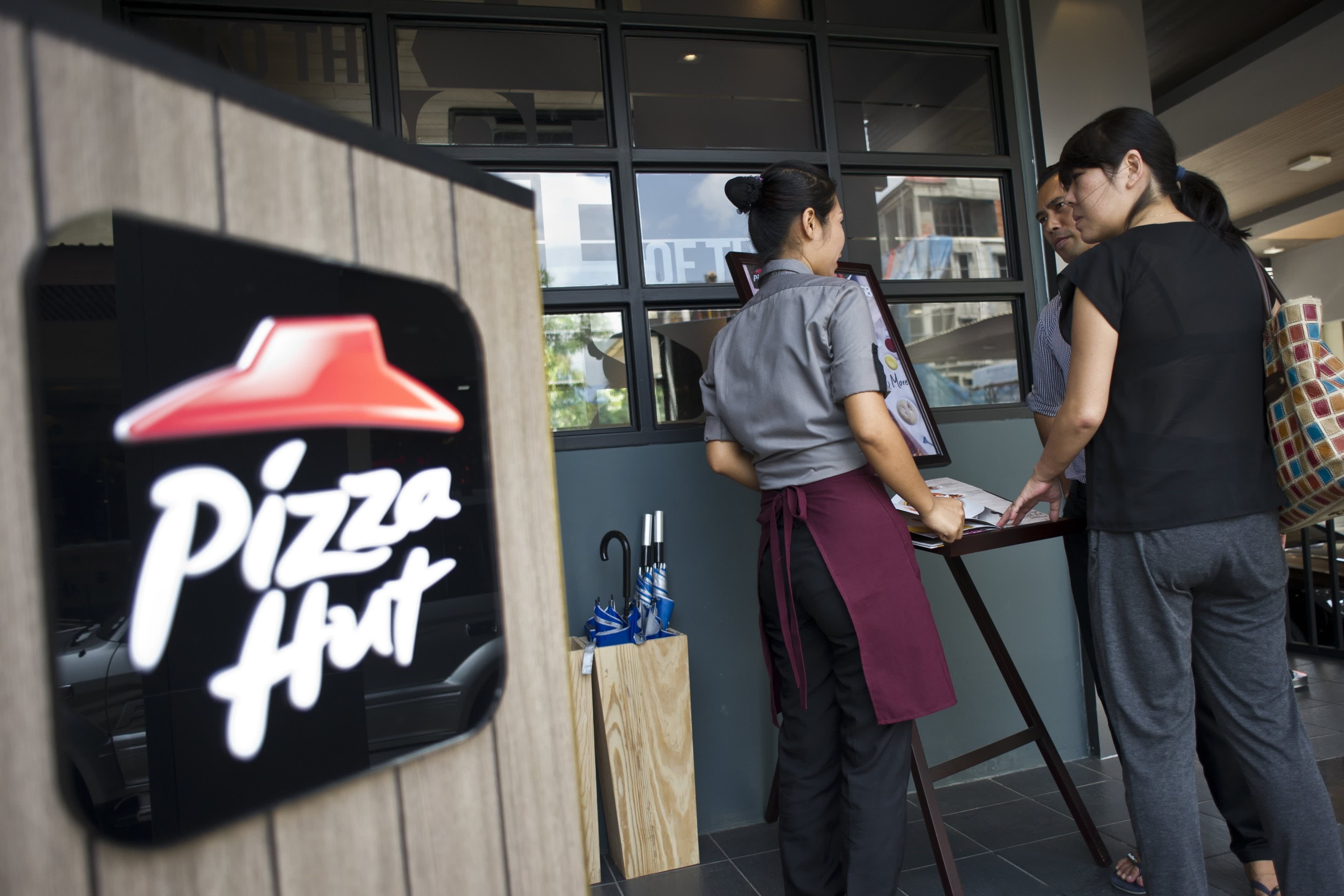
Ye Aung Thu | AFP | Getty Images
Yum Brands on Thursday reported quarterly earnings that fell short of analysts’ expectations as Pizza Hut’s struggles continue.
Shares of the company slid more than 2% in premarket trading.
Here’s what the company reported, compared with what Wall Street was expecting based on a survey of analysts by Refinitiv:
- Earnings per share: $1, adjusted, vs. $1.13 expected
- Revenue: $1.69 billion, vs. $1.66 billion expected
- Same-store sales: 2%, vs. 2.3% expected
Taco Bell’s parent company reported fiscal fourth-quarter net income of $488 million, or $1.58 per share, up from $334 million, or $1.04 per share, a year earlier.
The company’s minority stake in Grubhub trimmed earnings per share by 5 cents. Grubhub struggled in 2019 as fierce competition with DoorDash, Uber Eats and Postmates put pressure on its business.
Excluding refranchising gains and other items, Yum earned $1 per share, missing the $1.13 per share expected by analysts surveyed by Refinitiv.
Net sales rose 9% to $1.69 billion, topping expectations of $1.66 billion. The company reported same-store sales growth across KFC, Pizza Hut and Taco Bell of 2%. Yum announced in January that it would be adding a fourth brand to its portfolio: Habit Restaurants, which owns the Habit Burger Grill.
Pizza Hut was once again the laggard during the quarter. Same-store sales at the pizza chain fell 2%, a steeper drop than expected by analysts.
KFC’s same-store sales increased by 3%, and Taco Bell’s grew by 4% in the fourth quarter.
On Wednesday, Yum China, which was spun off in 2016, warned that the Wuhan coronavirus will likely “materially affect” its 2020 sales and profits. The Chinese licensee of KFC and Pizza Hut said it could report an operating loss in the first quarter. China is KFC’s largest market by systemwide sales.
Yum China has temporarily closed about a third of its restaurants in the country, and those still open have seen sales drop dramatically. Same-store sales during the Lunar New Year holiday fell by 40% to 50% from a year ago. In response, Yum China has rolled out “contactless delivery” so customers do not have to engage with employees to pick up their food from a restaurant.



